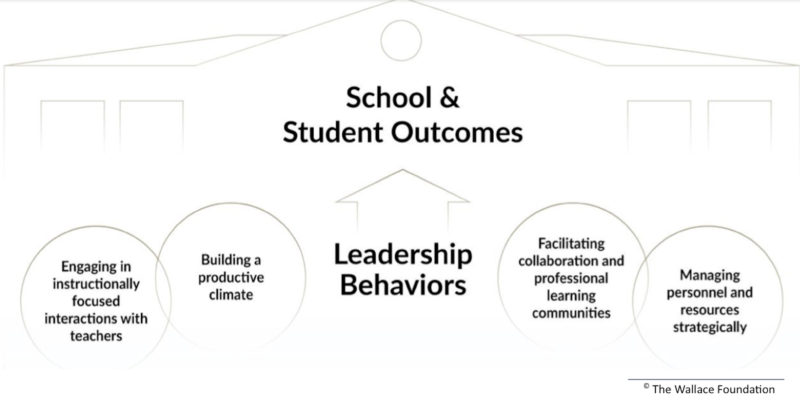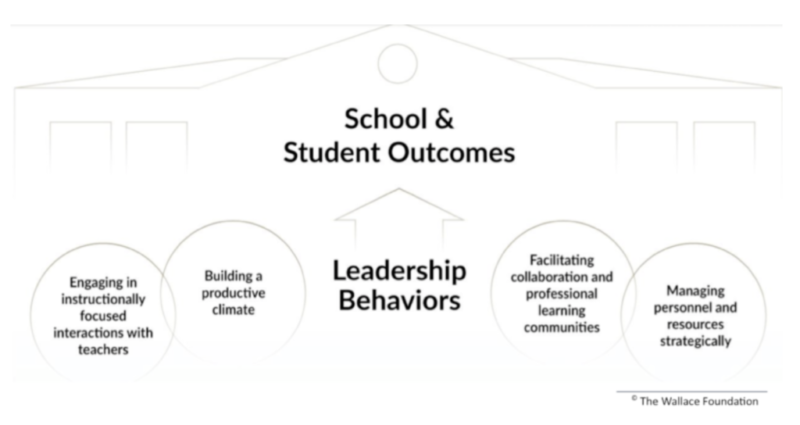New empirical evidence on Effective School Leadership
In February, the important research report How Principals Affect Students and Schools was published in the United States. The report offers a synthesis of two decades of empirical educational research on the importance and characteristics of effective school leadership.
The researchers based their conclusions on the results of 219 empirical studies. Their ambition included these two research questions:
- To what extent do school leaders contribute to student achievement and other school outcomes?
- What are the characteristics, skills and behaviours of effective school leaders?
The findings of the research report confirm the framework that we use with Schoolmakers when we talk about Effective School Leadership. The online 360° feedback survey Effective School Leadership is also based on the same research.
We zoom in below on three conclusions in the research report.
1. Effective school leaders are at least as important for student learning as previous reports concluded – and perhaps their importance was not emphasised enough in those earlier reports.
In 2004, Leithwood and other researchers identified school leadership as the second most important school factor affecting student learning, based on their review of the literature at the time. They considered teachers to be the most important factor. The current researchers argue that we now have thorough, demonstrable causal studies based on longitudinal data that can assess the extent of the effects of school leaders on students’ learning outcomes. And it turns out, for example, that if a below-average school leader (with an effectiveness score at the 25th percentile) were replaced by an above-average school leader (with an effectiveness score at the 75th percentile), an average student could make one-third more learning gains annually in both mathematics and reading. Consequently, the researchers say, it is difficult to think of an investment with a higher improvement in learning outcomes than improving the leadership of school leaders. The data from their study reaffirms the immense importance of quality training, selection, preparation and support of school leaders.
“Investing in the principal is likely the most efficient way to affect student achievement.”
2. School leaders have important effects beyond student achievement. The researchers document recent studies linking more effective school leaders with important issues such as reductions in exclusion and absenteeism. Other research shows clear links between the degree of effective leadership and more positive working conditions for teachers, plus lower teacher turnover, especially among effective teachers. Together with student achievement results, these findings, according to the researchers, underscore how crucial strong school leaders are in several respects and how crucial for education policy efforts are to strengthen the leadership of school leaders.
3. Effective school leaders focus their practice on educationally focused interactions with teachers, building a productive school climate, facilitating collaboration and professional learning communities, and strategically managing staff and resources. These findings emerge from the researchers’ synthesis of dozens of studies on the role of the school leader and the behaviour of successful school leaders. They emphasise that the term education-oriented interactions with teachers is more specific than the general notion of educational leadership. Effective school leaders focus on feedback, coaching and other ways to strengthen teaching. They base this on classroom observations and other data on learning and teaching. Productive school climates are characterised by trust, collective effectiveness and fostering a culture of data use. These ideas are closely linked to the importance of collaboration and professional learning communities, which emphasise teachers working together to improve their teaching and to meet the needs of students. Finally, strategic management of staff and other resources focuses on the effective and equitable allocation of teachers and other key resources for student learning. The researchers conclude that programmes for the preparation of school leaders and the support structures when they are in office are likely to have a more positive impact if such preparation and support structures become more focused on the aforementioned aspects of school leadership.
I would like to encourage you to read the research report for yourself. It also contains, for example, empirically based conclusions about school leadership in schools with a high degree of diversity in the student population.
Please also feel free to contact me if you would like to explore in an informal conversation how Schoolmakers can support your school in further developing school leadership in your school.
Source: Grissom, J.A., Egalite, A. J., & Lindsay, C. A. (2021). How Principals Affect Students and Schools: A Systematic Synthesis of Two Decades of Research. New York: The Wallace Foundation.




